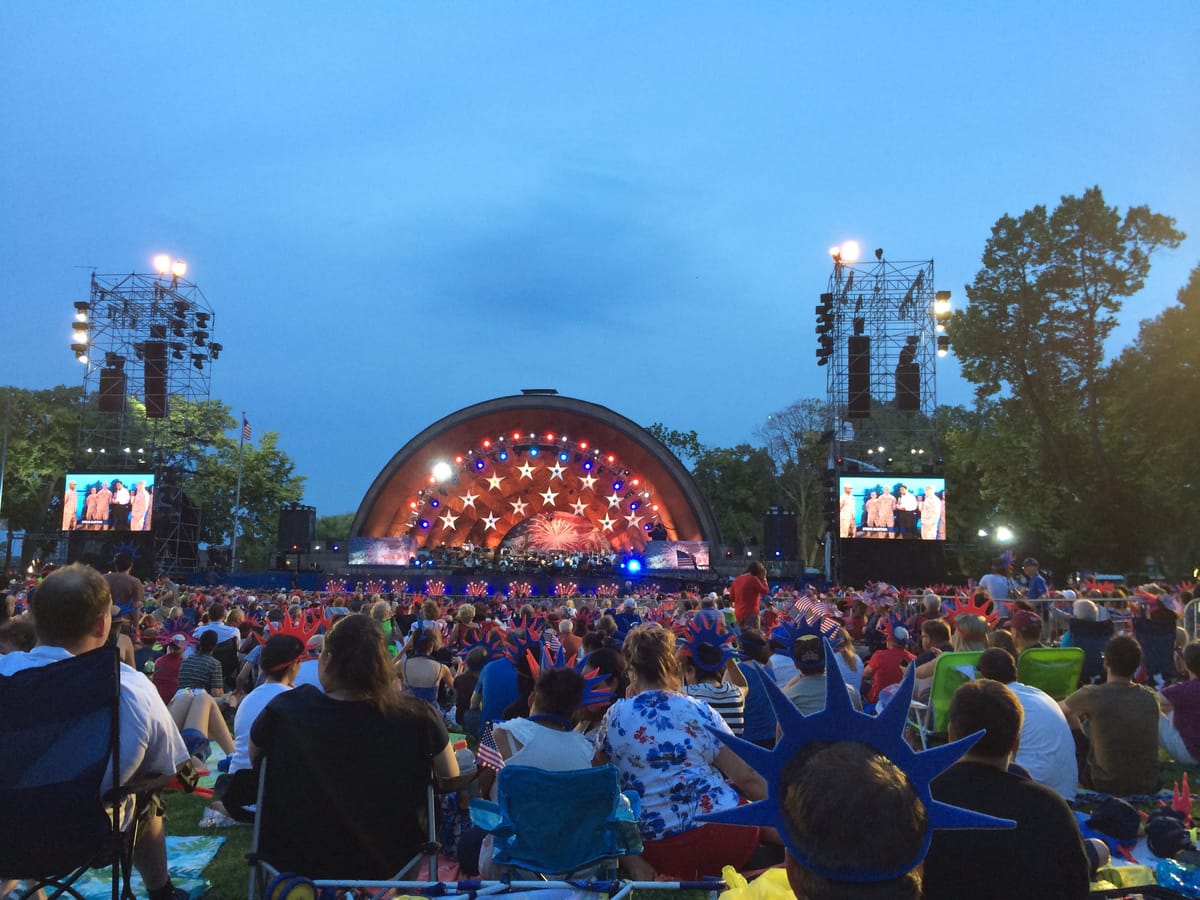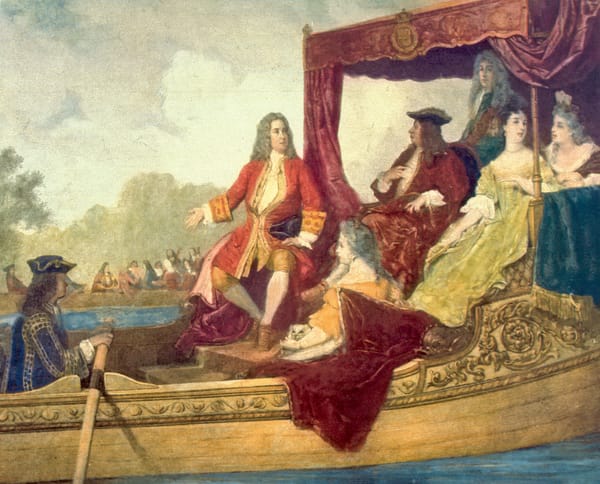Stars, Stripes and Storms

’Twas the night before 4th of July. Independence Day had come early that year. The ghost of Arthur Fiedler, the legendary conductor of the Boston Pops Orchestra, had decided to pay a visit in the form of Hurricane Arthur, and the 4th of July Concert and Fireworks were rescheduled for the 3rd at the very last minute. But how could he possibly miss the concert? I imagine he wanted to reminisce about the times he conducted the Pops on the 4th of July all those years ago on the very same Charles River Esplanade. And if he hadn’t caused Tchaikovsky’s 1812 Overture to be cancelled, I might even have forgiven him.
The day began with the sun blazing down on me, as I waited in a line that could only be described as a giant mass of bodies, all trying to squeeze through a narrow space. But I braved the heat, and was rewarded with a place on the lawn with a great view of the acoustic Hatch Shell, where the orchestra would perform. As I waited for the sun to set and the music to start, I thought about what a privilege it was to be in the midst of such a celebration. The tradition of Independence Day concerts began in 1929, with Arthur’s vision that great symphonic music should not be the prerogative of a select few. It should be as readily available to the masses as timeless literature in public libraries and masterpieces of art in museums. His legacy has continued till today, with the Boston Pops performing free concerts on the banks of the Charles River every summer.
The first cool breeze blew like a breath of fresh air as the musicians hit the first note. From then on, it was magic, all prior discomfort forgotten. The reading of “This Difficult Song: The Star-Spangled Banner at 200”, to the music of Sousa’s Star Spangled Banner filled the atmosphere with such emotion that it almost brought tears to my eyes. The concert then moved on to the roaring 20’s, and played swing music with such vivacity that dance lovers like me found it impossible to stay in their seats. I contented myself by watching a sailor do the Charleston and let the music work its magic.
The night was going along perfectly, with performances ranging from Disney songs sung by the Boston Children’s Chorus to Broadway numbers. The Beach Boys performed their famous summer songs and were probably the crowd favorites. Even as everyone was singing along to Yankee Doodle, which was particularly enjoyable, I was eagerly awaiting the piece that would be the highlight of the night for me, Tchaikovsky’s monumental 1812 Overture, complete with canons and church bells.
But just as the orchestra was tuning its instruments, an announcement was made that Hurricane Arthur was fast approaching, and the fireworks would take precedence over the 1812 Overture. I was highly dismayed, but my hopes rose again when they said that the concert would continue after the fireworks, if Arthur permitted. I ran along the esplanade to find a place to watch the explosion of lights in the sky which was truly the work of a genius, as perfectly orchestrated as the notes in a symphony. As the final light died out, the crowd started receding, but I went against the flow in the hopes of hearing the music I had been waiting for. Alas, it was not meant to be. I was forced to accept that the night was over, and started to walk back home.
And then the storm hit us. I was walking down Beacon Street when I saw a mass of people running towards me in the middle of the road screaming, followed by a distant haze. In mere seconds the haze outran the humans and we were hit by a torrent of rain and wind so strong that it almost blew me away. We ran for shelter to the nearest foyer but we were already soaked to the skin. I will never forget the sight. It was right out of an apocalyptic movie.
But Arthur left just as suddenly as he had arrived. As I walked back along Harvard Bridge, the rain had reduced to a silent drizzle, with streaks of lightning momentarily lighting up the Cambridge skyline. It was one of the most serene experiences I have had, like the sudden change from fortissimo to pianissimo. I returned home and settled down to listen to a recording of the 1812 Overture on my humble speakers, dreaming of what the true music would have sounded like.





